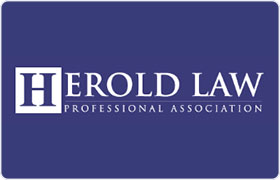Millington Wills & Probate Lawyer, New Jersey
Sponsored Law Firm
-
 x
x

Click For More Info:
-
Herold Law, P.A.
25 Independence Boulevard Warren, New Jersey 07059-6747» view mapEstate, Wills & Probate, Power Of Attorney, Trusts Committed To Excellence
Herold Law, P.A. is committed to reaching the most efficient and effective resolutions possible for their clients.
800-845-9621
Includes: Estate Administration, Living Wills, Wills
James R. Pastor
Transportation & Shipping, Wills & Probate, Family Law, Medical Malpractice
Status: In Good Standing
Thomas J Crownover
Wills & Probate, Family Law, Franchising, Bankruptcy & Debt
Status: In Good Standing
 Craig Provorny Warren, NJ
Craig Provorny Warren, NJ AboutHerold Law, P.A.
AboutHerold Law, P.A. Practice AreasExpertise
Practice AreasExpertise
